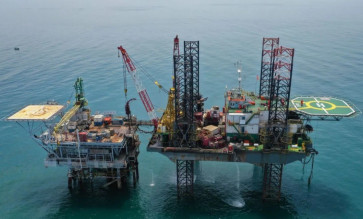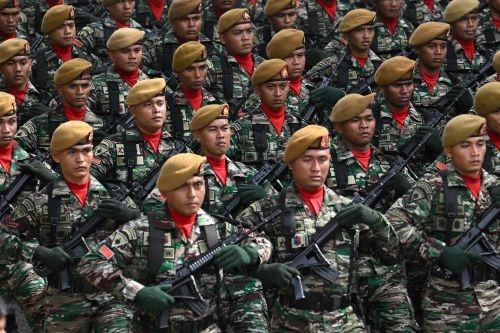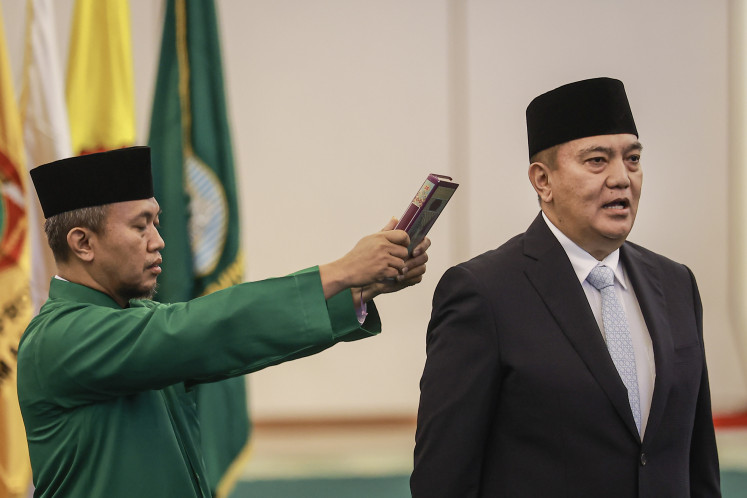Letters: In the sky, there is no room for error
I would like to dispute a statement made by the Indonesian Military (TNI) chief Gen
Change text size
Gift Premium Articles
to Anyone

I would like to dispute a statement made by the Indonesian Military (TNI) chief Gen. Djoko Santoso, that the recent plane crash in Bandung was caused by bad weather.
This implied that human error or technical factors were not responsible for the crash. The general was only repeating the official Air Force line.
However, it is far too early to release an official statement citing the exact causes of the crash. It is impossible to know at this point if human error or technical factors were involved. As long as an official investigation is still taking place, no statements about conclusive findings of the investigations should be made.
General Djoko Santoso's remarks concerning the cause of the accident are premature and could be misleading. Similar statements were made years ago in connection with an aero plane crash involving a Cassa plane in Banten and a CN 235 airliner in west Java.
In both cases the cause of the crash was released prior to any official investigations. The Cassa crash was blamed on a mechanical malfunction while the CN 235 crash was blamed on an allegedly incompetent female pilot.
The official investigation of the Cassa incident dismissed any mechanical malfunction, determining the crash occurred as a result of pilot error.
The cause of the CN 235 crash is still unknown, but it was unfair to prematurely blame the female pilot. It was widely accepted that to defend the reputation of the Indonesian manufactured CN 235, the good name and reputation of the female pilot had to be sacrificed.
The F-27 air force plane that crashed in Bandung had been declared mechanically sound. Although on the day of the crash visibility was well above average, weather conditions during landing were unfavorable, with rain and gusty crosswinds.
However landing in the rain with strong crosswinds is routine in commercial and military flight operations, no experienced pilot should face any problems flying in these conditions.
The tower would have informed the pilot about the exact prevailing weather conditions at the airport including precipitation, visibility, wind direction, velocity and any wind gusts.
The F-27 pilot apparently did not compensate enough to deal with the crosswind from the right side that would have kept the plane heading for the runway. As a result the plane was pushed to the left where it hit the hangar. Usually attempts are made to spare the pilot the embarrassment of being accused of incompetent flying.
Not so much in order to save his/her career but to prevent the pilot's institution from getting a bad reputation. So, in the Bandung crash, bad weather was blamed.
Should the pilot have taken more effective action to deal with the cross wind effect in order to stay in line with the runway for landing?
I my humble opinion, yes I do think so. In many flying training schools one will see prominently displayed: The sky is vast but there is no room for error.
E. Tumengkol
Jakarta









